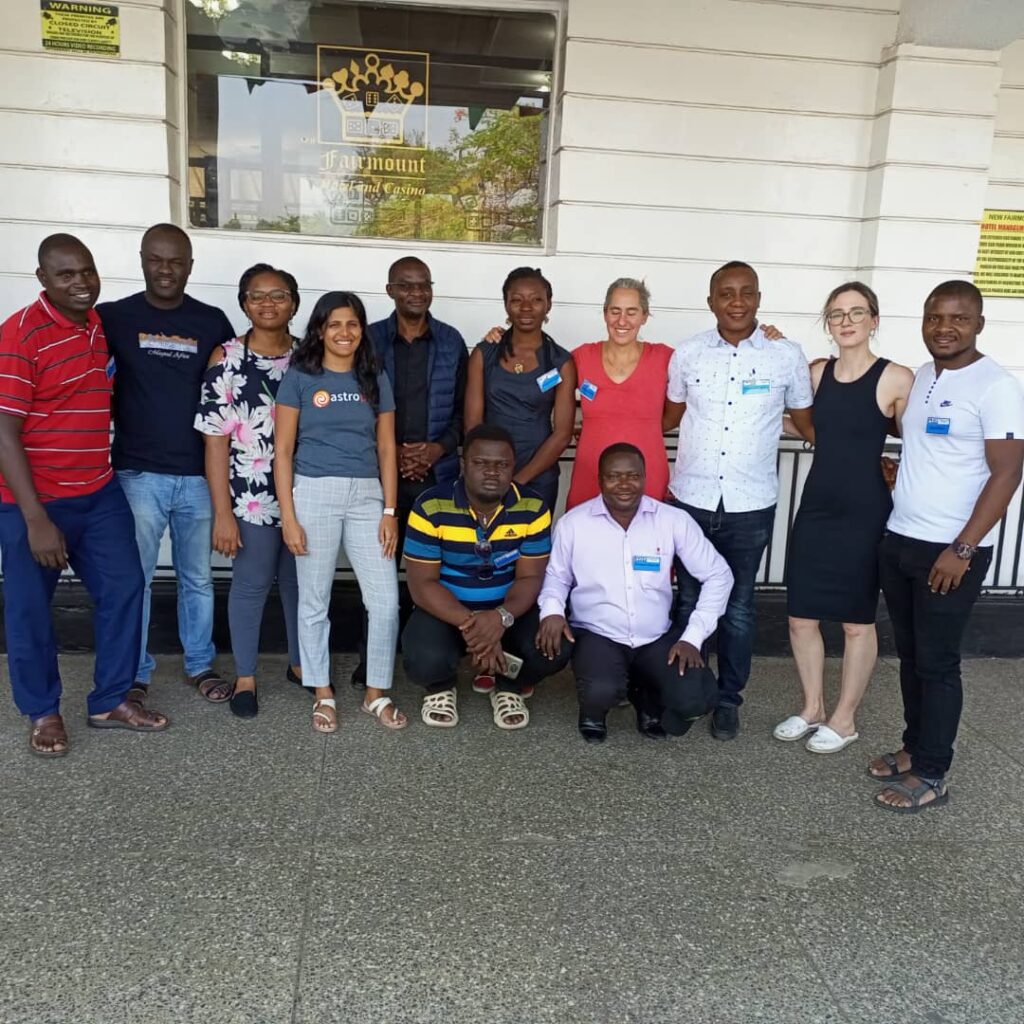In late 2022, the Pan-African School for Emerging Astronomers (PASEA) was organised in Zambia, the fifth in the series of schools that started in 2013 as West African International Summer School for Young Astronomers (WAISSYA). Due to COVID-19, PASEA was rescheduled from October 2021 to October 2022. The Summer School eventually took place from 6th October 2022 to 15th October 2022, jointly organized by the West African Regional Office of Astronomy for Development (WAROAD) and Southern African Regional Office of Astronomy for Development (SAROAD) in collaboration with astronomers and scientists from across the globe. A total of 36 participants attended the school (21 undergraduates and 15 post-graduates) of which 16 were female participants.
The major objectives of PASEA 2022 were to:
- strengthen students’ scientific thinking, build their capacity
- support both old and new alumni to pursue further studies in Science, Technology, Engineering and Mathematics (STEM) related fields thereby creating home-grown scientists, innovators, inventors and users of facilities
- build scientific communities across Africa with over 250 alumni and 20 inquiry-trained instructors.
PASEA 2022 consisted of a one-week pre-school workshop for instructors on inquiry-based method of teaching and another one-week of parallel streams for participants: undergraduate stream which covers the basics of astronomy/space science and post-graduate stream which focuses on research. PASEA combined interactive lectures, problem-solving sessions, hands-on experience and inquiry-based activities to fulfil the human capacity needs of African students. Lessons delivered during PASEA 2022 combined teaching scientific thinking along with scientific content, and incorporated rigorous assessment to evaluate the effectiveness of our program.
Instructors, on the other hand, learned how to design interactive lessons, teach via inquiry, exchange teaching ideas across cultures and also took these ideas back to their regular classrooms. In all, PASEA 2022 helped to lay good foundation for a sustained involvement of African students in STEM research and innovation through global partnership.
The deliverables of PASEA 2022 were:
i. Instructor’s Workshop via intercultural pairs in order to build collaborations inter-cultural exchange among instructors.
ii. Interactive session on challenges facing men and women in Science.
iii. ‘‘Inquiry lab’’ for mini-research projects using Posters to help participants think scientifically
iv. Astronomy careers and challenges
v. Python programming workshop.
vi. Intensive training/capacity building on big data handling, modeling and simulation
vii. Training on remote observation using Las Cumbras Telescopes through live demonstrations.
viii. Night sky observation using optical telescopes
ix. Hands-on activities for self-development using different manuals prepared by the instructors
The PASEA 2022 pre-school survey research conducted on the first day of the program and the post-school survey research conducted on the last day showed that our program was very influential for the intending choice of career/study of over 90% of PASEA 2022 participants. In addition, the participants commended the organizers of PASEA 2022 for their invaluable contributions to their academic life through the opportunity given to them to partake in the program.

